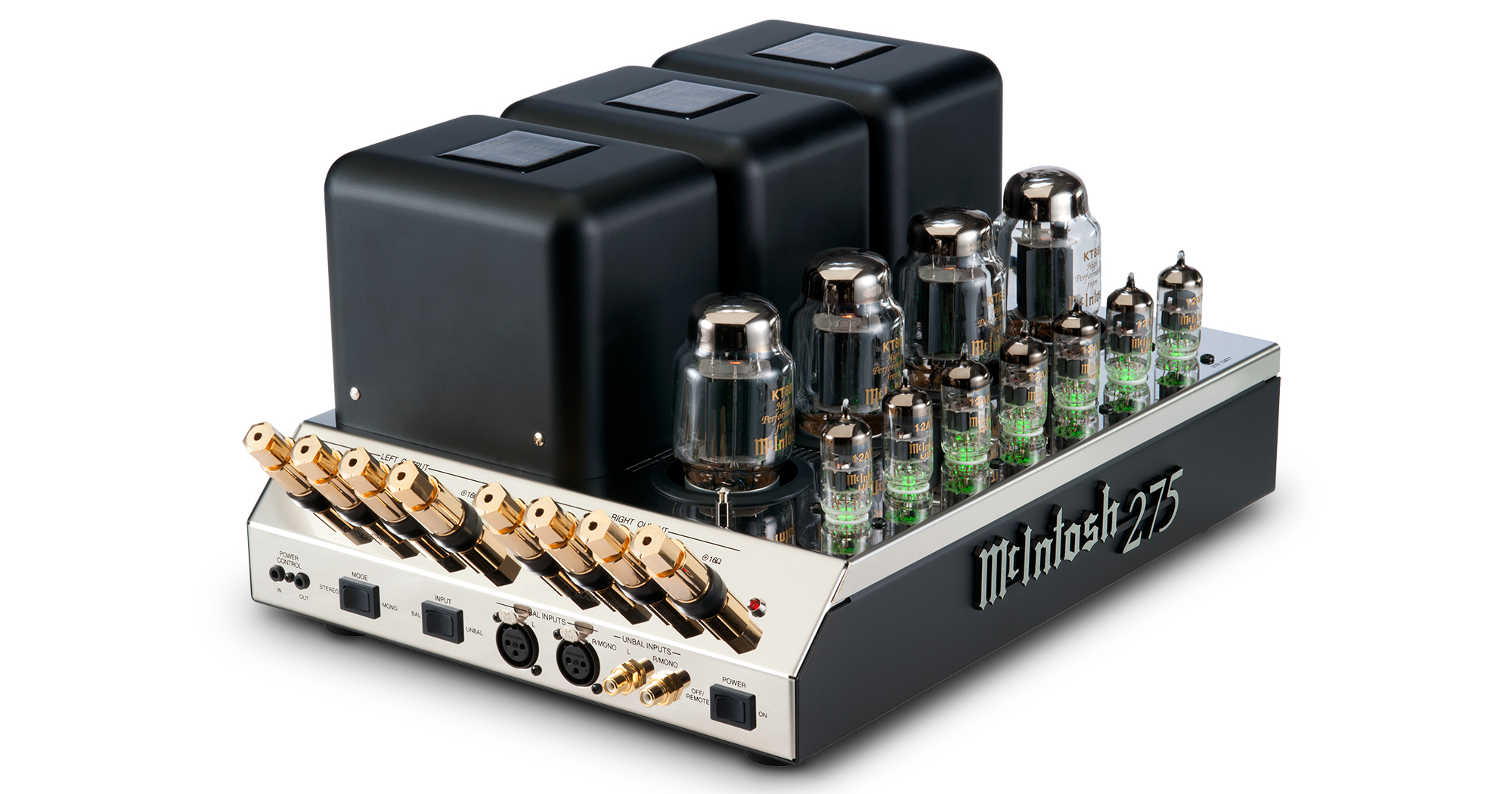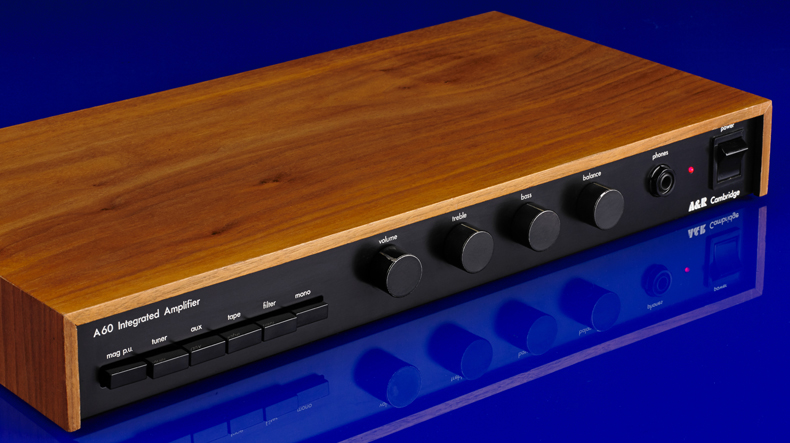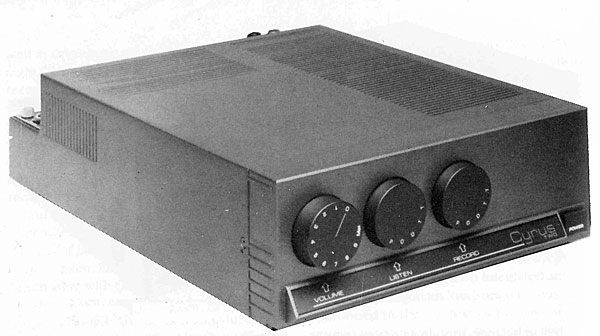McIntosh is a prestigious brand with a long history of providing high-quality items. The massive MC275 power amplifier is in its sixth iteration, with the first one debuting in 1961. The famous McIntosh Unity Coupled Circuit, designed by company co-founders Sidney A. Corderman and Gordon Gow, featured an unique transformer to offer wider bandwidth with lower noise than traditional valve amplifiers. It gave the original a wonderful tone, and it’s become rather collectible as a result.
This most recent form, which debuted in 2012, presents these fundamental principles in a more modern atmosphere. It’s a totally modern piece of kit, with circuit boards instead of hard wire, selected passive components, and the latest McIntosh output transformers. The power supply is choke-regulated and employs solid-state rectifiers rather than valves, which some purists may object to. The row of LEDs running along the seven smaller tubes is one distinguishing feature, indicating whether they’re working or not — amber indicates warm up, green indicates normal, and red indicates they’ve gone bang, though you’d probably figure that out anyway!
It’s a wonderfully finished beastie, weighing in at 34.1kg with its polished stainless steel base and massive, chunky ‘Autoformers.’ It’s also distinct from its competitors, both Chinese and non-Chinese, in that it’s significantly Class B biased, with a lot of negative input to keep the four KT88s honest. Unless you were trying for one thing in particular – power – this isn’t how you’d design a tube amp in my opinion. As a result, the MC275 demonstrates that it is a hugely muscular machine, with a stated 75W RMS per channel, which is extremely extraordinary in tube amp terms. The KT88 is a linear device that proves to be reliable even when pushed to its limits, as the huge McIntosh certainly does.
This isn’t for you if you like gentle, sweet, rich sound – dare I say, dull, warm, and gloopy – as some do. It’s not a single-ended triode designed for horn loudspeakers that puts out a few watts. It’s really huge, full-bodied, and ‘comin’ at ya’! It has a simple but unmistakable charm, similar to a Harley Davidson Sportster motorcycle; it does exactly what it says on the tin, and if you don’t like the tin, you don’t purchase it. Tonally, it is strongly illuminated and defined, to the point where it will grate like hell through horn speakers, but you don’t need to pair it with such because it produces as much power as a tired glowworm! Instead, connect it to any current speaker, the bigger the better, and the big Mac will flap your flares.
Its damping factor of 22 won’t bother a solid-state amp, but it’s better than many tube designs, as evidenced by the taut (for a valve amp) bass. It thumps along with immense driving energy in a lively and highly rhythmic manner. Things get wider and more expansive higher up, and they’re a little smoother and sweeter than you might imagine. Treble isn’t known for its transparency or velvety refinement, but it’s well defined and crisp, and it gets the job done.
When you push the McIntosh hard enough, it begins to clip in the way that a transistor amp would; there’s no flatulent farting noise from overloaded output transformers here. This occurs at shockingly high levels, and with most current speakers having a sensitivity of roughly 89dB or higher, you’ll be more concerned about your hearing than the voice coils. The KT88 proves its worth here; it’s a power valve meant for audio, and McIntosh has it running just as it should. The modest McIntosh signal valves – 12AT7s and 12AX7s – are adequate, but there’s plenty of potential for later experimentation, using fancy designer and/or NOS valves if that’s your thing. However, even in its stock form, the MC275 is a beast!
It’s a fantastic bruiser for people looking for big, aggressive tube power. However, many valve amp fans will consider it to have a somewhat homogeneous timbre that the better tube amps lack; it simply lacks the transparency and insight of, say, a pair of Icon Audio ST845/IIs, much alone a GRAAF GM 400. Rather, it presents you with its own partisan perspective on music – it’s a lot of fun, but it’s not the real world.
The MC275 from McIntosh is a tube amplifier with a twist: it can storm into classic transistor power amplifier territory and throw the cat among the birds. Many solid-state enthusiasts will adore it, not least because it has considerably more exotic appearance than any transistor power amp, but tube fans may find it to be a little cheesy in terms of sound. There’s a lot to appreciate about this £6,000 design, but it’s not for everyone.







